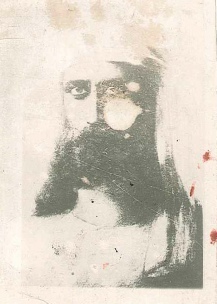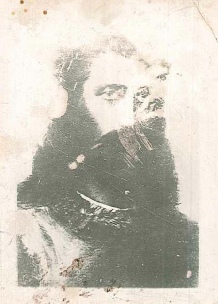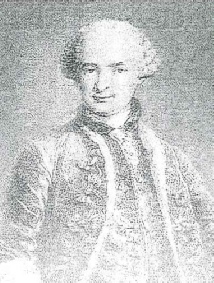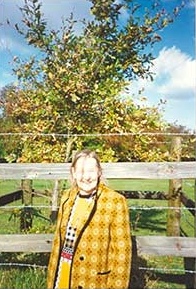

Jean Overton Fuller
1915 – 2009
W R I T E R -
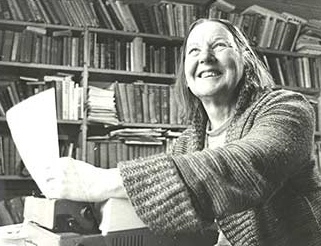
Bomb Saga later published as The Bombed Years poem sequence. These poems describe living in London during World War 2. The collection is dedicated “for my friends of those days, and for those who were not there in those days, to tell them what it was like.”
Ducksfeet
Ducksfeet of snow wet on my cheek
Teach the eyes to narrow against the cold.
Resist this lesson,
That would make the face
A grey and eyeless fortress
With slits to glint from.
Better be a buttercup
Battered by the rains
Of summer,
Petals beaten back,
Yet still
Buttercup petals,
Petals of a flower,
Than become a winter thing
Built
With vents closed against the blast.
1 Primrose Hill
2 Pattern of our nights
3 Guns sleeping
4 Dog fight
5 Landmine
6 Rest Centre
7 The Tubes
8 Pink rectangle
9 Oil bomb
10 Pheobe
11 Pheobe in love
12 Fire in the City
13 Mother
14 The Smell
15 Mother at Ruskin
16 Journeys to Denmark Hill
17 The florist
18 The fish
19 Sinister intonation
20 The walk to Whitechapel
21 The Uxbridge Road
22 News
23 Exams
24 Taviton Street
25 Cursitor Street
26 The Fourth Scarab
27 Move to Guilford Place
28 Russell Square
29 Beowulf and Bombs
30 St. Pancras
31 Judd Street
32 Guilford Place
33 Mr Murray
34 Fire-
35 A new rhythm
36 Doodlebugs
37 Correct terms
38 V2
39 Francis
40 V1 and V2
41 Lincoln’s Inn
42 The man yattering
43 The Air Ministry
44 Another afternoon
45 The Willow-
Wisdom
Life is not a corridor
To be hurried down
To a removed, far, final chamber of bliss.
For all our ecstasies,
Time is the road
Our feet tread;
The conquest's in our walking this.
Written June 3 1966
A Selection of Poetry
The Secret
There is no sacred work
Save to understand
What is happening from hour to hour;
To bring to the encounter
Of every moment total presence
Without expectation
Is the whole of the secret,
Art and power.
Written June 3 1966
“Have you noticed the behaviour of snowdrops?”
"No," he answered, puzzled.
"They started coming up, then stopped.
A cold spell followed. They were waiting for it.
Then they started again; now they've stopped
Again. There's more hard weather coming.
They're waiting for it. Snowdrops know."
I have noticed this for years now
With the snowdrops, have come to trust
Their prescience.
Potatoes have it not,
Will put forth bold leaves
In the warmth of a deceiving April,
To have them frostbitten.
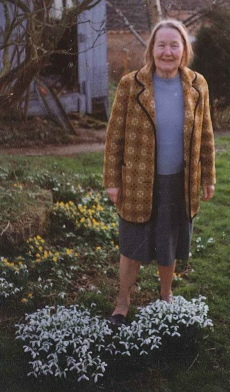
Two Essays
The Paints on the Palette
On his palette the artist has little screws of colour set around, ready squeezed for use. Seeing what he has on his palette may give one a clue to what he is going to put on his canvas; if there is no vivid colour on the palette he is not going to paint a vivid picture; if he has the vivid reds, blues and yellows then he may be going to do something in a brilliant key, unless of course he tempers them by mixture with something else that he has also.
If he has but little red, he is hardly set up to attempt scarlet poppies, but with a variety of yellows he is well able to do the buttercups and the yellow irises in the scene before him and with these and the blues he can make a whole range of different greens.
He can however use his materials with more or less skill; he might select a different subject altogether on which to employ them; and another individuality holding the same palette and brushed would certainly paint in a style unlike simply because he was a different person.
The horoscope, in the sense of this image, is simply what he has got on his palette. The palette limits the picture. A quiet palette will, irrespective of the skill employed, give only a picture in quiet tones. If there is a big squeezing of one colour on the palette, the artist may go to it with his brush often so that it may come to dominate the picture. Yet the freedom to compose and paint well or ill within the range of the palette is surely more important than the limitations imposed by the palette.
But who in our analogy was responsible for the range and amount of the squeezings?
If the different colours for different people were at start squeezed out by chance
or the hand of God, then at this point my analogy breaks down. I with my Theosophistic
standpoint would say of course they were made by ourselves in our pre-
Is this how the Gods see us, the way and the what and the whom we shall meet, before we see it, because they stand external to our world as I to the world of the baby spiders? A world on the side of a railing on the side of a building …. a planet on the side of a sun on the side of the Milky Way.
And yet the mites are interdependent. I can see the problems they will have to face, because I can see the webs of their spinning and of their treading and I can see where they are on their webs; what I cannot forsee is the solutions they will find to the problems confronting them, because the solutions are individual and depend on what they have in themselves to bring to the problem.
So perhaps may the Gods forsee our destiny, but not the way we shall meet it. So may astrologers doing progressed horoscopes see the aspects that will be met, but not how they will be met.
A Ball of Spiders: Meditation by a railing of the British Museum
A golden ball of baby spiders, touched by my finger separates in all directions; the compact little sphere that it was, unobtrusive beneath a sheltering curve of the Museum railing, dispersing in a myriad starlets, each complete with all their legs, perfect minute replicas of the adults of their species. The nest of eggs from which they were so recently hatched and which is still the centre of their world to which they were clinging is for a moment almost deserted.
Gradually the panic subsides; and those who first sprang and swarmed away from the centre now steady down, find new positions, and as they are not really ready to leave home yet, think about return. For those who have blown to an adjacent curvature of the railing across a space, this means fastening the line they have brought with them (great though their hurry, they have none of them forgotten to bring their line) before returning along it.
But now I can see that another spiderling, slower away from the ball, is leaving it by the very line which the spinner who spun it has just made fast and along which he is returning. What will happen when they meet in the middle? I who watch can see the whole situation, the one line, the two spiderlings approaching each other from different ends along it. I can see the problem to be faced, not predict the solution.
Will they collide head on? Will one reverse? They are up to each other now. It is the moment of crisis. One is walking over the top of the other. The underneath one, and it is the usurper, has done a sideways duck so that he is no more on the line but under it, clinging upside down like a sloth, while the rightful owner still the right way up picks his way over the upturned soles of his eight feet, lifting his own stickily and a trifle high between each step, as though he really did not care for having this to tread on, then having got clear of the obstruction regathers speed.
The underneath one pulls himself the right way up again, but now finds his journey pointless, turns around and follows the first one home. On another line I see the same drama approaching the point of decision; but this time the usurper does not wait for the returning rightful owner to walk over him; apprehending the impending impact, he reverses and hurries backwards, the returning spiderling driving him home as it were.
So I can see the whole of the drama, whereas the actors cannot see the situation which lies before them until they are almost upon it; I can see who is destined to meet who, because I can see the whole of the line along which they are approaching each other.
The difference between your view and mine is only that, whereas you and I both believe in the continued existence and immortality of the personality, you write that to set against faults avowed "I have a whole life's credit to haggle with HIM" as to carry over to the next life there to provide a better or worse starting point.
You regard the individuals as having an epi-

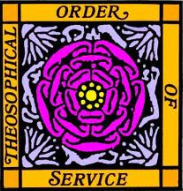
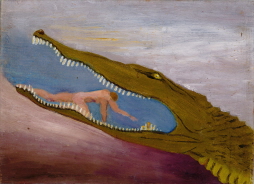
At the riding-
I asked Shirley and Bob. They said,
“We would love to have the little oak-
On August twentieth, nineteen eighty three
It celebrated its majority,
In my garden.
"Twenty-
I told my mother I had reared it faithfully,
Its top was high
Above my head.
"It will not die."
Yet, as its leaves turned gold
And russet, I worried.
I painted it in oils, and they came out red,
Was it bleeding from what was to come?
On November the nineteenth
Came Bob with the two big sons.
Three, in blue overalls, they dug,
And dug, and dug. Is this murder?
Have they got up enough of the root?
I went with it on the trailer,
Its root high in the air,
High and bare,
To the field on Rectory Hill.
They set it so it would face
The course of the sun from dawn to evening.
“In a hundred and fifty years,” they said,
“It will be a great tree. People as they pass
On the path will look up at it and see
It dominate the rise.”
Immortality
The mystery of that night has been with me all my life.
The whole mystery of the caterpillar and its transformations
Has underlain much of my thought and symbolism.
When first I saw the Greek letter Omega
I said, "It's my dear caterpillar.”
I have painted him in his glorious half-
More than life-
Hangs over my poetry shelves.
I believe it is because of the caterpillar
I have always believed in immortality.
Mother was never quite sure whether
She thought we lived after death. Urging her, as a still
Small child, I said, "Perhaps we are caterpillars.
Perhaps the coffin is a chrysalis.
Perhaps we climb out with wings, and fly."
P O E T R Y & E S S A Y S

El Morya
Kuthumi
Saint Germain
Moon-
The great moment was seeing the blue globe
Of the earth over the moon's rim.
That was the moment
I felt we had been to another world and seen
Our world from it.
It started thoughts Berkleian.
Did this view exist before there was any
Eye to see it?
But after landing,
Having watched all night till five in
The morning, I went out to walk around the block, and stretching
Tall, leaped to touch with my hands the leaves of a branch above my head.
Written November 25 1969
Ist prize Manifold Poems of the Decade 1970
All Jean Overton Fuller poetry and prose copyright Timothy d’Arch Smith 2009
The Ascended Masters

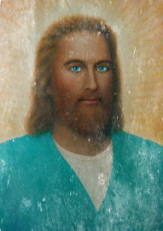
Conversion
I went to the Natural History Museum
But this time down into the cellars
Among the skeletons of the past
And everything turned green
As I left the basement the sky loured
The louring cloud was a monster
Tentacles sucked me I cried "Help!"
The sky was an octopus no one could hear me
I cried "Christ!" my breath was so drained
I could hardly hear the faint sound I made
With the last of my breath
I said "Bless you!" to the monster
There was no monster
Only three small flowers at my feet
Apology For Having Studied Many Things
I shall never regret
Having learnt to paint.
Though seldom time to take my brushes
And mix a little yellow
In the blue to make a sky
Between the colour of a starling's
Egg and thrush's,
The mauve light on a gull's wing
Has given me a line
In a poem.
I shall never regret
Having studied the stars.
Though I no longer
Reduce to algebraic formulae
The variations of R Scuti,
The Galaxy
Is a fecund source of images
Inspiring poetry.
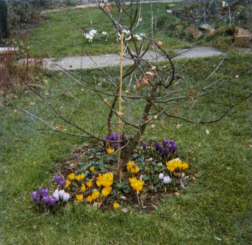
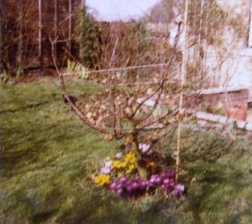
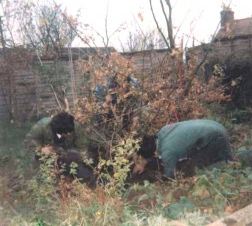
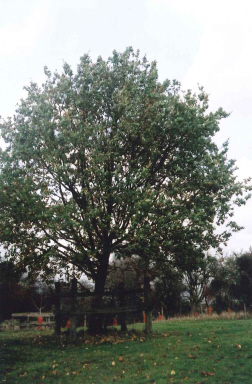
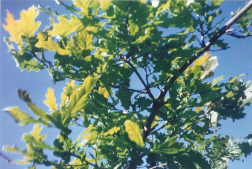
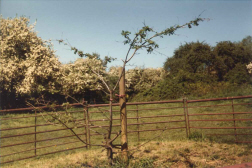

As an actress
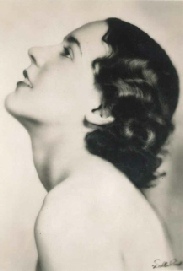
The little oak-
This time last year I was so worried,
Meditating its ordeal to come.
An acorn,
Picked up from the grass where we sat at Kew,
It had lived in a bowl
In my Mother’s flat in South Kensington.
She kept thinking where she could plant it out,
To be safe, when it became too big for the flat.
“I don’t want to turn it out to die.”
When she died. I brought it to my flat,
In Guilford Place. Several inches high
It had three branches. I turned it into a pot.
Three years later I had to move
To Whitfield Street. The light was dim,
And its leaves became too large for the stem
As it stretched toward the window
Through four long years and more.
I bade it hope,
Promised light all round, in a garden,
If it could keep its courage up.
Several feet long,
In a huge pot, it came in the car
To my new home. I staggered
With it after breakfast to the lawn,
Dug, and set it, with light all around it,
Said, “Little oak-
It had lived all its life in central-
Would it survive the shock?
It reorientated its branches, grew,
Grew and grew. Eight years on
It was stretching an arm
That would come in at my window.
“This garden won’t do…
The Great Adventures of the Much Travelled Little Oak-
I climbed to it every day the long winter through,
With a basin of Maxicrop, in which I dipped the shoots,
To take the strain off the roots,
Before pouring down the bole,
And blessed it in every holy name I knew,
"Preserve the life in it,
May it come through."
(We had nothing off above
To match the loss below.)
I told it when the solstice came,
And when the equinox. “The oak
Leaves late in the year.”
Yet not so late as this. My worst
Moment was, when motoring, I saw oaks green,
This still brown. I said,
“You can feel the wood’s still supple. It’s not dead.”
The horses came up, and while I watched began
To eat it. I ran, fetched Shirley and Bob.
He made an iron fence around it, electrified, with a stile
For me to climb over, said,
“The colts wouldn’t eat anything dead.”
At last, at last, when it was past
Midsummer, it showed points of green,
Unfolded whorls of very tiny leaves.
Rejoice, rejoice, and make haste
While the season lasts…
Then came the drought.
With all the water we poured down it,
The tiny leaves shrivelled. Despair
Of leaves for this year.
“Put strength into making roots,
Deep and wide and long and strong.”
I made gestures to show what I meant.
The rains came. I spied three
New points of green beneath the sear.
In four days more
The new green starts were twenty-
Mainly waiving in the air above me.
“Leafing in October, whoever heard of this?
Little oak-
Little oak-
“We must all come back and see it in our next incarnations,”
I said. “Meet beneath its branches,
A rallying point for those who have been friends before.”
“You will come and talk to it sometimes, won't you?"
They said. And yet, as the sun went down,
And I left it, with prayers for it, I felt bleak.
"Little oak-
With thanks to Ronald Hyde for converting the poems from cassette to disc.
With thanks to Ronald Hyde for transferring Jean Overton Fuller’s Theosophical Society lectures from cassette to disc. These have been donated to the Theosophical Society Library in Gloucester Place, London.
International Conference on Theosophical History:
Theosophical Society in England, Gloucester Place, London, 19th July 1986
“Saint Germain and Madame Blavatsky”
Theosophical Society, Gloucester Place, London, 29th November 1987
“The Comte de Saint-
Theosophical Society, Gloucester Place, London 16th July 1995
“The Judge Affair”
The Blavatsky Lodge of the Theosophical Society in England, Gloucester Place, London, 13th May 1999
“An Evening of Cyril Scott and Krishnamurti”
You are the peach against my wall warmed by the sunshine;
You are the eyes for which my star grows bright;
You are the canvas for which I bring my colours;
You are the reader for whom I write;
You are the glory of my loving;
You are my sun's cart;
You are the sweetness in my bread;
You are the peace of my heart.
You are the morning that opens at my window;
You are the table whereon I set my loaves;
You are my reason for adorning the house;
You are the bud within my leaves;
You are the green shoot I protect and cherish;
You are the relish of each hour.
You are the crown upon my waving stamens;
You are the gold dust on my flower;
You are the field whereon I sow;
You are the heaven reflected in my lake;
You are the leven in my dough;
The Sun’s Cart – for Timothy d'Arch Smith
Yet holly makes most berries
When the winter will be hard.
"For the birds," my nursery governess
Used to say. I cannot
Believe that a plant
Acts with regard to others than itself.
Yet those berries are formed, green, in the summer.
How does holly know?
Is there a superior, invisible,
Devic oversoul that guides,
Instructs,
Provides?
With snowdrops
On the Prescience of Snowdrops
With the oak tree
Miss Fuller reading
Bomb Saga
